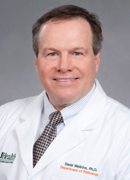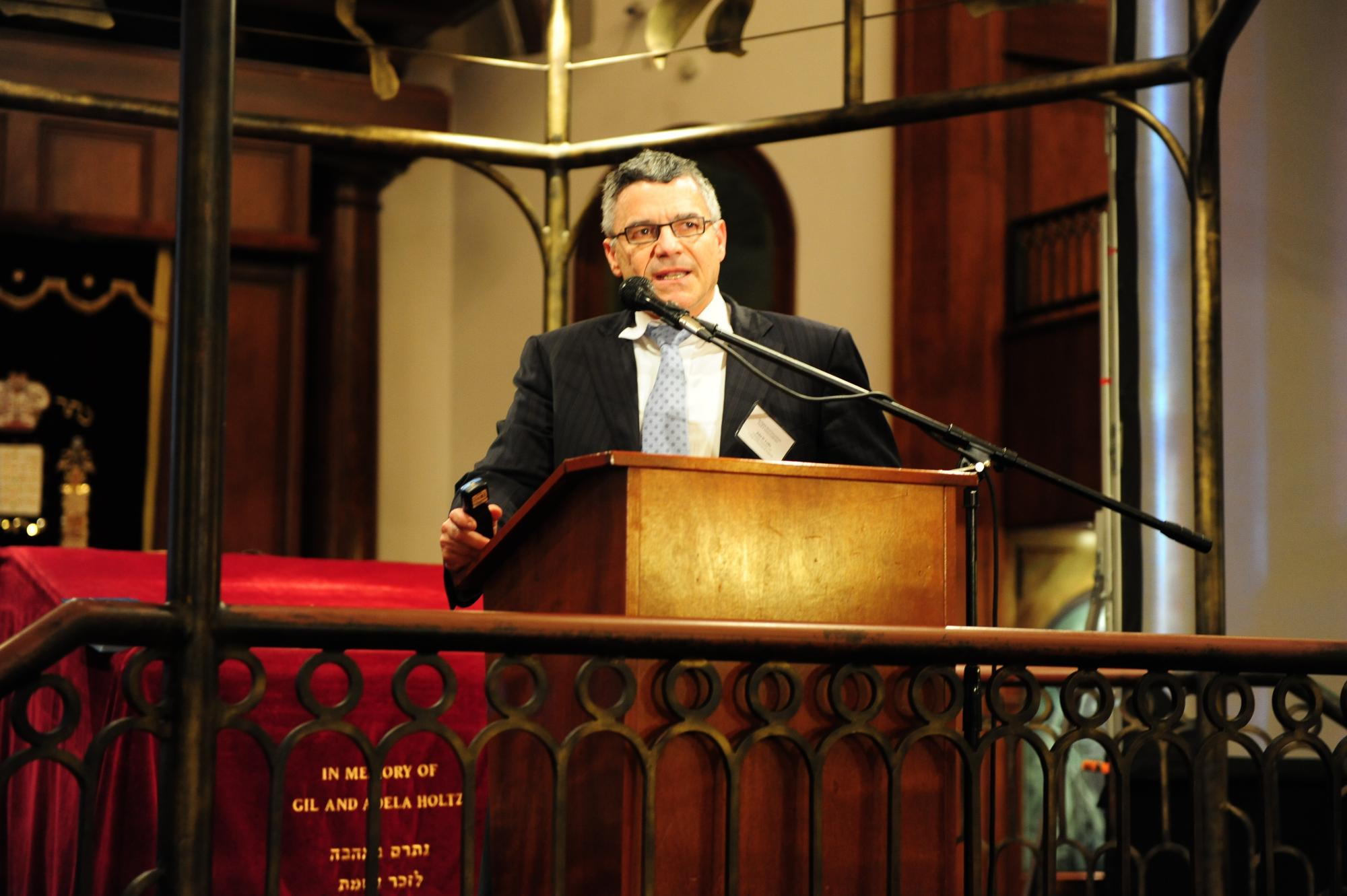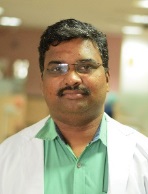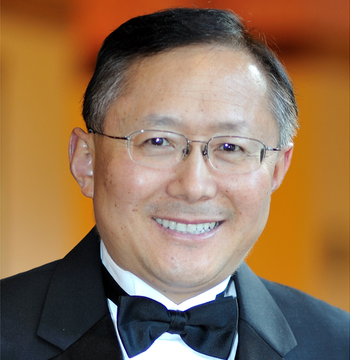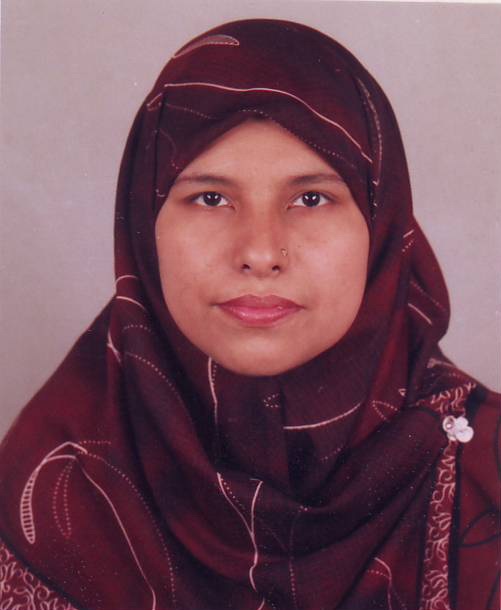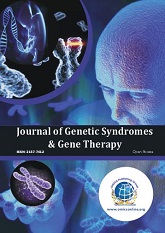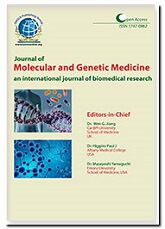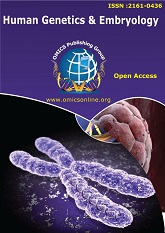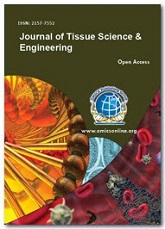Theme: An insight into molecular basis of life
Molecular Genetics Congress 2017
Track 1: Molecular Biology
Molecular biology is the study of molecular underpinnings of the processes of replication, transcription, translation, and cell function. Molecular biology concerns the molecular basis of biological activity between the biomolecules in various systems of a cell, gene sequencing and this includes the interactions between the DNA , RNA and proteins and their biosynthesis. In molecular biology the researchers use specific techniques native to molecular biology, increasingly combine these techniques and ideas from the genetics and biochemistry.
Related Molecular Biology Conferences| Genetics Conferences| Gene Therapy Conferences| Biotechnology Conferences| Immune Cell Therapy Conferences
2nd World Congress on Human Genetics & Genetic Disorders, November 02-03, 2017 Toronto, Canada; 9th International Conference on Genomics and Pharmacogenomics, June 15-16, 2017 London, Uk; 6th International Conference and Exhibition on Cell and Gene Therapy, Mar 27-28, 2017 Madrid, Spain; Gordon Research Conference, Viruses & Cells, 14 - 19 May 2017, Lucca, Italy; Human Genome Meeting (HGM 2017), February 5-7 2017, Barcelona, Spain; Embl Conference: Mammalian Genetics And Genomics: From Molecular Mechanisms To Translational Applications, Heidelberg, Germany, October 24, 2017; Genetic and Physiological Impacts of Transposable Elements, October 10, 2017, Heidelberg, Germany.
American Society for Cell Biology ; The Society for Molecular Biology & Evolution ; American Society for Biochemistry and Molecular Biology ; The Nigerian Society of Biochemistry and Molecular Biology; Molecular Biology Association Search Form - CGAP.
Track 2: Gene Therapy and Genetic Engineering
The genetic engineering is also called as genetic modification. It is the direct manipulation of an organism's of genome by using biotechnology. It is a set of technologies used to change the genetic makeup of the cell and including the transfer of genes across species boundaries to produce improved novel organisms. Genes may be removed, or "knocked out", using a nuclease. Gene is targeting a different technique that uses homologous recombination to change an endogenous gene, and this can be used to delete a gene, remove exons, add a gene, or to introduce genetic mutations. There is an dna replacement therapy, Genetic engineering does not normally include traditional animal and plant breeding, gene sequencing, in vitro fertilization, induction of polyploidy, mutagenesis and cell fusion techniques that do not use recombinant nucleic acids or a genetically modified organism in the process, diseases treated with gene therapy was initially meant to introduce genes straight into human cells, focusing on diseases caused by single-gene defects, such as cystic fibrosis, hemophilia, muscular dystrophy and sickle cell anemia
Related Molecular Biology Conferences| Genetics Conferences| Gene Therapy Conferences| Biotechnology Conferences| Immune Cell Therapy Conferences
8th World Congress on Molecular Pathology, June 26-27, 2017 San Diego, USA; 11th International Conference on Surgical Pathology & Practice, March 27-28, 2017, MADRID, SPAIN; 13th European Pathology Congress, Aug 02-03, 2017, MILAN, ITALY; 28th Annual Meeting, Austrian Society For Human Genetics And The Swiss Society Of Medical Genetics Combined Meeting 2017 march 29, 2017 - March 31, 2017, bochum , Germany.
Association for Clinical Genetic Science; Genetics Society of America | GSA; Association of Genetic Technologists; Molecular Genetics - Human Genetics Society of Australasia; Genetic Engineering - Ecological Farming Association.
Track 3: Cell & Gene Therapy
Cell therapy is also called cellular therapy or Cyto therapy , in which cellular material is injected into patient this generally means intact, living cells. The first category is cell therapy in mainstream medicine. This is the subject of intense research and the basis of potential therapeutic benefit. Such research can be controversial when it involves human embryonic material. The second category is in alternative medicine, and perpetuates the practice of injecting animal materials in an attempt to cure disease. Gene therapy is the therapeutic delivery of nucleic acid polymers into a patient's cells as a drug to treat disease. Gene therapy is a way to fix a genetic problem at its source. The polymers are either translated into proteins, interfere with target gene expression, or possibly correct genetic mutations. The most common form uses DNA that encodes a functional, therapeutic gene to replace a mutated gene. The polymer molecule is packaged within a "vector", which carries the molecule inside cells. Vectors used in gene therapy, the vector incorporates genes into chromosomes. The expressed nucleases then knock out and replace genes in the chromosome. The Center for Cell and Gene Therapy conducts research into numerous diseases, including but not limited to Pediatric Cancer, HIV glioma and Cardiovascular disease.
Related Molecular Biology Conferences| Genetics Conferences| Gene Therapy Conferences| Biotechnology Conferences| Immune Cell Therapy Conferences
2nd World Congress on Human Genetics & Genetic Disorders, November 02-03, 2017 Toronto, 27 Canada ; 7th International Conference on Plant Genomics, July 03-05, 2017, Bangkok, Thailand ; American Society of Gene and Cell Therapy (ASGCT) 20th Annual Meeting, 10 - 13 May 2017, Washington, DC; Genomic Medicine for Clinicians (course), January 25-27, 2017, Hinxton , Cambridge, UK; Embo Conference: Chromatin and Epigenetics, Heidelberg, Germany, May 3, 2017; 14th International Symposium on Variants in the Genome Santiago de Compostela, Galicia, Spain, June 5 - 8, 2017;
Genetics and Molecular Medicine - American Medical Association; Genetics Society of America / Gsa; British Society for Genetic Medicine; British Society for Gene and Cell Therapy; Australasian Gene Therapy Society.
Track 4: Cell Cancer Immunotherapy
Immunology deals with the biological and biochemical basis for the body's defense against germs such as bacteria, virus and mycosis (fungal infections) as well as foreign agents such as biological toxins and environmental pollutants, and failures and malfunctions of these defense mechanisms. Cancer immunotherapy is the use of the immune system to treat cancer. Immunotherapies can be categorized as active, passive or hybrid (active and passive). Antibodies are proteins produced by the immune system that bind to a target antigen on the cell surface. The immune system normally uses them to fight pathogens. A type of biological therapy that uses substances to stimulate or suppress the immune system to help the body fight cancer, infection, and other diseases. Some types of immunotherapy only target certain cells of the immune system. Others affect the immune system in a general way. Types of immunotherapy include cytokines, vaccines, bacillus Calmette-Guerin (BCG), and some monoclonal antibodies.
Related Molecular Biology Conferences| Genetics Conferences| Gene Therapy Conferences| Biotechnology Conferences| Immune Cell Therapy Conferences
9thAnnual Meeting on Immunology and Immunologist, July 03-05, 2017 Kuala Lumpur, Malaysia; 8th Molecular Immunology & Immunogenetics Congress, March 20-21, 2017 Rome, Italy; 8th European Immunology Conference, June 29-July 01, 2017 Madrid, Spain; July 03-05, 2017; B Cells and T Follicular Helper Cells – Controlling Long-Lived Immunity (D2), April 2017, 23–27, Whistler, British Columbia, Canada; Mononuclear Phagocytes in Health, Immune Defense and Disease, 30–4 May, Austin, Texas, USA; Modeling Viral Infections and Immunity MAY 2017, 1–4, Estes Park, Colorado, USA; Integrating Metabolism and Immunity(E4) 29–2 June, Dublin, Ireland.
The American Association of Immunologists; Clinical Immunology Society ; Indian Immunology Society; IUIS - International Union of Immunological Societies; American Society for Histocompatibility and Immunogenetics.
Track 5: Clinical Genetics
Clinical genetics is the practice of clinical medicine with particular attention to the hereditary disorders. Referrals are made to genetics clinics for the variety of reasons, including birth defects, developmental delay, autism, epilepsy, and many others. In the United States, physicians who practice clinical genetics are accredited by the American Board of Medical Genetics and Genomics (ABMGG). In order to become a board-certified practitioner of a Clinical Genetics, a physician must complete minimum of 24 months of his training in a program accredited by the ABMGG. Individual seeking acceptance into clinical genetics training programs and should hold an M.D. or D.O. degree (or their equivalent)and he/she have completed a minimum of 24 months of their training in ACGME-accredited residency program internal medicine, pediatrics and gynecology or other medical specialty.
Related Molecular Biology Conferences| Genetics Conferences| Gene Therapy Conferences| Biotechnology Conferences| Immune Cell Therapy Conferences
Belgian Society Of Human Genetics Meeting 2017 february 17, 2017, Belgium; American College Of Medical Genetics 2017 Annual Clinical Genetics Meeting march 21-25 2017, phoenix , United States; German Society Of Human Genetics 28th Annual Meeting, Austrian Society For Human Genetics And The Swiss Society Of Medical Genetics Combined Meeting 2017 march 29, 2017 - March 31, 2017, bochum , Germany; Spanish Society Of Human Genetics Congress 2017april 25, 2017 - April 28, 2017 madrid , Spain;
Clinical Genetics Associates; Clinical Genetics Society (CGS); The genetic associate; International Conference on Clinical and Medical Genetics; Association for Clinical Genetic Science; The American Society of Human Genetics.
Track 6: Pharmacogenetics
Pharmacogenetics is the study of inherited genetic differences in drug metabolic pathways which can affect individual responses towards the drugs, both in their terms of therapeutic effect as well as adverse effects. In oncology, Pharmacogenetics historically is the study of germ line mutations (e.g., single-nucleotide polymorphisms affecting genes coding for liver enzymes responsible for drug deposition and pharmacokinetics), whereas pharmacogenomics refers to somatic mutations in tumoral DNA leading to alteration in drug response.
Related Molecular Biology Conferences| Genetics Conferences| Gene Therapy Conferences| Biotechnology Conferences| Immune Cell Therapy Conferences
Spanish Society Of Human Genetics Congress 2017april 25, 2017 - April 28, 2017, madrid , Spain; 8th World Congress on Pharmacology, August 07-09, 2017 Paris, France; World Congress on Bio therapeutics, May 22-23, 2017, Mexico City, Mexico; 8th World Congress On Pharmacology And Toxicology, July 24-26, 2017, Melbourne, Australia; German Society Of Human Genetics 28th Annual Meeting, Austrian Society For Human Genetics And The Swiss Society Of Medical Genetics Combined Meeting 2017march 29, 2017 - March 31, 2017 bochum , Germany.
Pharmacogenomics - American Medical Association; Associate Principal Scientist Clinical Pharmacogenetics; European Society of Pharmacogenomics and Personalised Therapy; Genome-wide association studies in pharmacogenomics.
Track 7: Molecular Genetic Pathology
Molecular genetic pathology is an emerging discipline within the pathology which is focused in the study and diagnosis of disease through examination of molecules within the organs, tissues or body fluids. A key consideration is more accurate diagnosis is possible when the diagnosis is based on both morphologic changes in tissues traditional anatomic pathology and on molecular testing. Molecular Genetic Pathology is commonly used in diagnosis of cancer and infectious diseases. Integration of "molecular pathology" and "epidemiology" led to interdisciplinary field, termed "molecular pathological epidemiology" (MPE), which represents integrative molecular biologic and population health science.
Related Molecular Biology Conferences| Genetics Conferences| Gene Therapy Conferences| Biotechnology Conferences| Immune Cell Therapy Conferences
8th World Congress On Molecular Pathology, June 26-27, 2017 San Diego, USA; 11th International Conference On Surgical Pathology & Practice, March 27-28, 2017, Madrid, Spain; 13th European Pathology Congress, Aug 02-03, 2017, Milan, Italy; Embl Conference: Mammalian Genetics And Genomics, Heidelberg, Germany, October 24, 2017; Embo|Embl Symposium: The Mobile Genome: Genetic And Physiological Impacts Of Transposable Elements, Heidelberg, Germany, October 10, 2017.
Clinical Pathology Associates Molecular Pathology; Association mapping – Wikipedia; Association for Molecular Pathology (AMP); Molecular Pathology - Association of Clinical Pathologists; SELECTBIO - Molecular Pathology Association of India.
Track 8: Gene Mapping
Genome mapping is to place a collection of molecular markers onto their respective positions on genome. Molecular markers come in all forms. Genes can be viewed as one special type of genetic markers in construction of genome maps, and the map is mapped the same way as any other markers. The quality of genetic maps is largely dependent upon the two factors, the number of genetic markers on the map and the size of the mapping population. The two factors are interlinked, and as larger mapping population could increase the "resolution" of the maps and prevent the map being "saturated". Researchers begin a genetic map by collecting samples of blood or tissue from family members that carry a prominent disease or trait and family members that don't. Scientists then isolate DNA from the samples and closely examine it, looking for unique patterns in the DNA of the family members who do carry the disease that the DNA of those who don't carry the disease don't have. These unique molecular patterns in the DNA are referred to as polymorphisms, or markers.
Related Molecular Biology Conferences| Genetics Conferences| Gene Therapy Conferences| Biotechnology Conferences| Immune Cell Therapy Conferences
3rd World Bio Summit & Expo, Abu Dhabi, UAE, June 19-21, 2017; 9th International Conference on Genomics and Pharmacogenomics June 15-16, 2017 London, Uk; Keystone Symposium: Mononuclear Phagocytes in Health, Immune Defense and Disease, 30–4 May 2017, Austin, Texas, USA; Molecular Neurodegeneration (course) Hinxton, Cambridge, UK, January 9-14, 2017;
Association for Clinical Genetic Science ; Genome-wide association study – Wikipedia; Gene mapping by linkage and association analysis – NCBI; Gene mapping by linkage and association analysis | Springer Link.
Track 9: Computational Genomics
Computational genomics refers to the use of computational and statistical analysis to decipher biology from genome sequences and related data, including DNA and RNA sequence as well as other "post-genomic" data. This computational genomics is also known as Computational Genetics. These, in combination with computational and statistical approaches to understanding the function of the genes and statistical association analysis, this field is also often referred to as Computational and Statistical Genetics/genomics. As such, computational genomics may be regarded as a subset of bioinformatics and computational biology, but with a focus on using whole genomes rather than individual genes to understand the principles of how the DNA of a species controls its biology at the molecular level and beyond. With the current abundance of massive biological datasets, computational studies have become one of the most important means to biological discovery. The field is defined and includes foundations in the computer sciences, applied mathematics, animation, biochemistry, chemistry, biophysics, molecular genetics, neuroscience and visualization. Computational biology is different from biological computation, which is a subfield of computer engineering using bioengineering and biology to build computers, but is similar to bioinformatics.
Related Molecular Biology Conferences| Genetics Conferences| Gene Therapy Conferences| Biotechnology Conferences| Immune Cell Therapy Conferences
Modeling Viral Infections and Immunity ,10. MAY 2017, 1–4, Estes Park, Colorado, USA; Integrating Metabolism and Immunity(E4) 29–2 June, Dublin, Ireland; EMBL Conference: Mammalian Genetics and Genomics, Heidelberg, Germany, October 24, 2017; EMBO|EMBL Symposium: The Mobile Genome: Genetic and Physiological Impacts of Transposable Elements, Heidelberg, Germany, October 10, 2017;
American Association of Bio analysts - Molecular/Genetic Testing; ISCB - International Society for Computational Biology; International Society for Computational Biology – Wikipedia; Bioinformatics societies – OMICtools; Towards an Australian Bioinformatics Society.
Track 10: Molecular Biotechnology
Molecular Biotechnology is the use of living systems and organisms to develop or to make products, or "any technological application that uses the biological systems, living organisms or derivatives, to make or modify products or processes for specific use. Molecular biotechnology results from the convergence of many areas of research, such as molecular biology, microbiology, biochemistry, immunology, genetics and cell biology. It is an exciting field fueled by the ability to transfer genetic information between organisms with the goal of understanding important biological processes or creating a useful product. The completion of the human genome project has opened a myriad of opportunities to create new medicines and treatments, as well as approaches to improve existing medicines. Molecular biotechnology is a rapidly changing and dynamic field. As the pace of advances accelerates, its influence will increase. The importance and impact of molecular biotechnology is being felt across the nation. Depending on the tools and applications, it often overlaps with the related fields of bioengineering, biomedical engineering, bio manufacturing and molecular engineering. Biotechnology also writes on the pure biological sciences animal cell culture, biochemistry, cell biology, embryology, genetics, microbiology, and molecular biology.
Related Molecular Biology Conferences| Genetics Conferences| Gene Therapy Conferences| Biotechnology Conferences| Immune Cell Therapy Conferences
8th European Immunology Conference, June 29-July 01, 2017 Madrid, Spain; World Congress on Bio therapeutics, May 22-23, 2017, Mexico City, Mexico; Human Genome Meeting (HGM 2017), February 5-7 2017, Barcelona, Spain; Integrating Metabolism and Immunity (E4), 29–2 June, Dublin, Ireland.
Biotech Associations - Stanford University ; Indian Society of Genetics, Biotechnology Research & Development; Genetics and Molecular Medicine - American Medical Association; Genetics Society of America | GSA, British Society for Genetic Medicine; Heritability in the Era of Molecular Genetics - Association for Psychological science.
Track 11: Genetic Transformation
Genetic Transformation is the genetic alteration of cell resulting from the direct uptake and incorporation of exogenous genetic material from its surroundings through the cell membrane. Transformation is one of three processes for horizontal gene transfer, in which exogenous genetic material passes from bacterium to another, the other two being conjugation transfer of genetic material between two bacterial cells in direct contact and Transduction injection of foreign DNA by a bacteriophage virus into the host bacterium. And about 80 species of bacteria were known to be capable of transformation, in 2014, about evenly divided between Gram-positive and Gram-negative Transformation" may also be used to describe the insertion of new genetic material into non-bacterial cells, including animal and plant cells.
Related Molecular Biology Conferences| Genetics Conferences| Gene Therapy Conferences| Biotechnology Conferences| Immune Cell Therapy Conferences
13th European Pathology Congress, Milan, Italy; Embl Conference: Mammalian Genetics And Genomics, Heidelberg, Germany, October 24, 2017; Embo|Embl Symposium: The Mobile Genome: Genetic And Physiological Impacts Of Transposable Elements, Heidelberg, Germany, October 10, 2017; 2nd World Congress on Human Genetics & Genetic Disorders, November 02-03, 2017 Toronto, Canada; 9th International Conference on Genomics and Pharmacogenomics, June 15-16, 2017 London, Uk;
American Society of Gene & Cell Therapy: ASGCT; Gene Therapy Societies and Patient Organizations - Gene Therapy Net; European Society of Gene and Cell Therapy (ESGCT); British Society for Gene and Cell Therapy; Gene Therapy - American Medical Association.
Track 12: Genetic Screening
Genetic screen is an experimental technique used to identify and select the individuals who possess a phenotype of interest in mutagenized population. A genetic screen is a type of phenotypic screen. Genetic screen can provide important information on gene function as well as the molecular events that underlie a biological process or pathway. While the genome projects have identified an extensive inventory of genes in many different organisms, genetic screens can provide valuable insight as to how those genes function.
Related Molecular Biology Conferences| Genetics Conferences| Gene Therapy Conferences| Biotechnology Conferences| Immune Cell Therapy Conferences
13th European Pathology Congress, Aug 02-03, 2017, Milan, Italy; 2nd World Congress on Human Genetics & Genetic Disorders, November 02-03, 2017 Toronto, 27 Canada; 7th International Conference on Plant Genomics, July 03-05, 2017, Bangkok, Thailand; Embl Conference: Mammalian Genetics And Genomics, Heidelberg, Germany, October 24, 2017; Embo|Embl Symposium: The Mobile Genome: Genetic And Physiological Impacts Of Transposable Elements, Heidelberg, Germany, October 10, 2017, 10 - 13 May 2017, American Society of Gene and Cell Therapy (ASGCT) 20th Annual Meeting, Washington, DC;
Association for Clinical Genetic Science; Association for Molecular Pathology (AMP);Mapping heritability and molecular genetic associations with cortical; Genetics and Molecular Medicine - American Medical Association.
Track 13: Regulation of Gene Expression
Regulation of Gene expression includes a wide range of mechanisms that are used by cells to increase or decrease the production of specific gene products (protein or RNA), and is informally termed gene regulation. Sophisticated programs of gene expression are widely observed in biology, Virtually any step of gene expression can be modulated, from transcriptional initiation, RNA processing, and post-translational modification of a protein. Often, one gene regulator controls another in a gene regulatory network. Any step of gene expression may be modulated, from the DNA-RNA transcription step to post-translational modification of a protein.
Related Molecular Biology Conferences| Genetics Conferences| Gene Therapy Conferences| Biotechnology Conferences| Immune Cell Therapy Conferences
7th International Conference on Plant Genomics, July 03-05, 2017, Bangkok, Thailand; EMBO|EMBL Symposium: The Mobile Genome: Genetic and Physiological Impacts of Transposable Elements, Heidelberg, Germany, October 10, 2017; 10. MAY 2017, 1–4, Estes Park, Colorado, USA, Modeling Viral Infections and Immunity; 29–2 June, Dublin, Ireland, Integrating Metabolism and Immunity(E4) ; MAY 2017, 1–4, Estes Park, Colorado, USA, Modeling Viral Infections and Immunity; 8th European Immunology Conference, June 29-July 01, 2017 Madrid, Spain; 9th International Conference on Genomics and Pharmacogenomics, June 15-16, 2017 London, Uk;
Gene Therapy Societies and Patient Organizations - Gene Therapy Net; European Society of Gene and Cell Therapy (ESGCT); British Society for Gene and Cell Therapy; Gene Therapy - American Medical Association
Track 14: Cancer Gene Therapy
Cancer is an abnormal growth of cells the proximate cause of which is an imbalance in cell proliferation and death breaking-through the normal physiological checks and balances system and the ultimate cause of which are one or more of a variety of gene alterations. These alterations can be structural, e.g., mutations, insertions, deletions, amplifications, fusions and translocations, or functional (heritable changes without changes in nucleotide sequence). No single genomic change is found in all cancers and multiple changes (heterogeneity) are commonly found in each cancer generally independent of histology. In healthy adults, the immune system may recognize and kill the cancer cells or allow non-detrimental host-cancer equilibrium; unfortunately, cancer cells can sometimes escape the immune system resulting in expansion and spread of these cancer cells leading to serious life threatening disease. Approaches to cancer gene therapy include three main strategies: the insertion of a normal gene into cancer cells to replace a mutated (or otherwise altered) gene, genetic modification to silence a mutated gene, and genetic approaches to directly kill the cancer cells. Pathway C represents immunotherapy using altered immune cells. Another unique immunotherapy strategy facilitated by gene therapy is to directly alter the patient's immune system in order to sensitize it to the cancer cells. One approach uses mononuclear circulating blood cells or bone marrow gathered from the patient.
Related Molecular Biology Conferences| Genetics Conferences| Gene Therapy Conferences| Biotechnology Conferences| Immune Cell Therapy Conferences
8th European Immunology Conference, June 29-July 01, 2017 Madrid, Spain; World Congress on Bio therapeutics, May 22-23, 2017, Mexico City, Mexico; Human Genome Meeting (HGM 2017), February 5-7 2017, Barcelona, Spain; Integrating Metabolism and Immunity (E4), 29–2 June, Dublin, Ireland.
Biotech Associations - Stanford University ; Indian Society of Genetics, Biotechnology Research & Development; Genetics and Molecular Medicine - American Medical Association; Genetics Society of America | GSA, British Society for Genetic Medicine; Heritability in the Era of Molecular Genetics - Association for Psychological science.
Track 15: Genetic Transplantation
Transplantation genetics is the field of biology and medicine relating to the genes that govern the acceptance or rejection of a transplant. The most important genes deciding the fate of a transplanted cell, tissue, or organ belong to what is termed the MHC (the major histocompatibility complex). Genetic Transplantation is the moving of an organ from one body to another or from a donor site to another location on the person's own body, to replace the recipient's damaged or absent organ. Organs and/or tissues that are transplanted within the same person's body are called auto grafts. Transplants that are recently performed between two subjects of the same species are called allografts. Allografts can either be from a living or cadaveric source Organs that can be transplanted are the heart, kidneys, liver, lungs, pancreas, intestine, and thymus. The kidneys are the most commonly transplanted organs, followed by the liver and then the heart. The main function of the MHC antigens is peptide presentation to the immune system to help distinguish self from non-self. These antigens are called HLA (human leukocyte antigens). They consists of three regions: class I (HLA-A,B,Cw), class II (HLA-DR,DQ,DP) and class III (no HLA genes)
Related Molecular Biology Conferences| Genetics Conferences| Gene Therapy Conferences| Biotechnology Conferences| Immune Cell Therapy Conferences
8th World Congress on Pharmacology, August 07-09, 2017 Paris, France; International Conference on Clinical and Molecular Genetics, Las Vegas, USA, April 24-26, 2017; Aug 02-03, 2017, 13th European Pathology Congress, Milan, Italy; Embl Conference: Mammalian Genetics And Genomics, Heidelberg, Germany, October 24, 2017; 7th International Conference on Plant Genomics, July 03-05, 2017, Bangkok, Thailand.
American society of Transplantation; American Society of Transplant Surgeons: ASTS; Patient associations. Donation and transplantation; American Society of Gene & Cell Therapy ASGCT; Gene Therapy Societies and Patient Organizations - Gene Therapy Net.
Track 16: Cytogenetics
Cytogenetics is a branch of genetics that is concerned with study of the structure and function of the cell, especially the chromosomes. It includes routine analysis of G-banded chromosomes, other cytogenetic banding techniques, as well as molecular Cytogenetics such as fluorescent in suitable hybridization FISH and comparative genomic hybridization.
Related Molecular Biology Conferences| Genetics Conferences| Gene Therapy Conferences| Biotechnology Conferences| Immune Cell Therapy Conferences
9thAnnual Meeting on Immunology and Immunologist, July 03-05, 2017 Kuala Lumpur, Malaysia; 8th Molecular Immunology & Immunogenetics Congress, March 20-21, 2017 Rome, Italy; 8th European Immunology Conference, June 29-July 01, 2017 Madrid, Spain; July 03-05, 2017; B Cells and T Follicular Helper Cells – Controlling Long-Lived Immunity (D2), April 2017, 23–27, Whistler, British Columbia, Canada.
European Cytogeneticists Association; Association of Genetic Technologists; Association for Clinical Genetic Science; Cytogenetics - Human Genetics Society of Australasia; European Cytogeneticists Association
About the Conference
Molecular Genetics & Gene Therapy International Conferences invites all the participants from all over the world to attend 2nd World Congress during July 03-05, 2017, Thailand, Bangkok which includes prompt keynote presentations, Oral talks, Poster presentations and Exhibitions.
Molecular genetics is the field of biology and genetics that studies the structure and function of genes at a molecular level. The study of chromosomes and gene expression of an organism can give insight into heredity, genetic variation, and mutations. This is useful in the study of developmental biology and in understanding and treating genetic diseases. Gene therapy is the therapeutic delivery of nucleic acid polymers into a patient's cells as a drug to treat disease.
Molecular Genetics & Gene Therapy International organizes a conference series of 1000+ Global Events inclusive of 300+ Conferences, 500+ Upcoming and Previous Symposiums and Workshops in USA, Europe & Asia with support from 1000 more scientific societies and publishes 700+ Open access journals which contains over 30000 eminent personalities, reputed scientists as editorial board members.
Why to attend???
This unique international conference provides a platform for researchers and decision makers in Molecular Genetics & Gene Therapy to present their latest findings and learn about all the important developments in Molecular Genetics & Gene Therapy. Many scientists and world's renowned experts will participate in the conference. Throughout the course of the Three days conference, you will have the opportunity to both network and hear leaders from the international academic and corporate Molecular Genetics & Gene Therapy communities. This conference seek to bring all such scientist, Noble Laureate, researcher, research scholar, students and people together who are involved in this field and provide them to discuss about their innovation, exchange ideas and interaction with each other.
Why Bangkok?
Bangkok is the capital and most populous city of Thailand. The city occupies 1,568.7 square kilometres (605.7 sq mi) in the Chao Phraya River delta in Central Thailand, and has a population of over 8 million, or 12.6 percent of the country's population. Over 14 million people (22.2 percent) live within the surrounding Bangkok Metropolitan Region, making Bangkok an extreme primate city, significantly dwarfing Thailand's other urban centers in terms of importance.
Bangkok rapid growth amidst little urban planning and regulation has resulted in a haphazard cityscape and inadequate infrastructure systems. The city has since turned to public transport in an attempt to solve this major problem. Four rapid transit lines are now in operation, with more systems under construction or planned by the national government and the Bangkok Metropolitan Administration.
Bangkok welcomes more visitors than any other city in the world and it doesn’t take long to realise why. Bangkok is a city of contrasts with action at every turn; marvel at the gleaming temples, catch a tuk tuk along the bustling Chinatown or take a long tail boat through floating markets. Food is another Bangkok highlight, from local dishes served at humble street stalls to haute cuisine at romantic rooftop restaurants.
Luxury malls compete with a sea of boutiques and markets, where you can treat yourself without overspending. Extravagant Luxury hotels and surprisingly cheap serviced apartments welcome you with the same famed Thai hospitality. And no visit to Bangkok would be complete without a glimpse of its famous nightlife – from cabarets to exotic red-light districts, Bangkok never ceases to amaze.
Importance and scope
Molecular Genetics & Gene Therapy is a mounting and constantly evolving field of study, one which has gained much ground in past years through the development of advanced research and data management tools. Expert researchers explore the current issues and methodologies of this expanding field, specifically addressing areas of gene discovery and the functional analysis of genes with a target on the primary tools and sub-disciplines of genetic mapping, mRNA, Protein and metabolite profiling. Molecular Genetics & Gene Therapy employ exciting new methods to investigate molecular plant breeding technology and gene functional analysis via transformation, mutation, protein function, and gene expression. The success of transgenic crops has erased the last vestiges of doubt about the value of agricultural biotechnology and triggered large-scale investments in plant genomics. The first genomics technology that was practiced on a large scale was sequencing the 5′ ends of c DNAs, to produce expressed sequence tags (ESTs).
Target Audience:
Industry : 40%
Academic :50%
Others : 10%
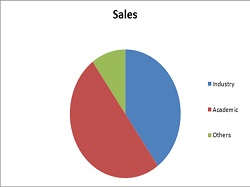
The conference will attract a large group of scientists and researchers from round the globe. Delegates will have a valuable, informative and positive experience.
- Biotechnologists
- Pharmaceutical Experts
- CEOs, CROs, directors and research associates from the Genetics industries.
- Young Scientists
- Academic Students
- Genetic Faculty
- Genetic Counsellor’s
- Business Entrepreneurs
The target audience will be Biologist, Microbiologist, pathologist, Molecular and cell biologist researcher or scientist who are researching in cancer biology and using plant product as cancer reducing agent.
Meet Your Target Market With members from around the world focused on learning aboutMolecular Genetics & Gene Therapy, this is your single best opportunity to reach the largest assemblage of participants from the all Over the World. Conduct demonstrations, distribute information, meet with current, make a splash with a new product line, and receive name recognition at this 3-day event. World-renowned speakers, the most recent techniques, tactics, and the newest updates in Molecular Genetics & Gene Therapy are hallmarks of this conference.
A Unique Opportunity for Advertisers and Sponsors at this International event:
http://molecularbiology.conferenceseries.com/asiapacific/
The global market for Molecular Genetics & Gene Therapy is expected to reach USD 22.1 billion by 2020, growing at an estimated CAGR of 10.3% from 2014 to 2020, according to a new study by Grand View Research, Molecular Genetics & Gene Therapy Inc. play an imperative role in the field of infectious disease testing by enabling the use of fast and effective result rendering molecular diagnostic tests. This, coupled with growing prevalence of infectious diseases and hospital acquired infections is expected to drive market growth during the forecast period. Other driving factors for this market include decreasing prices of DNA sequencing, increasing demand for genome analysis in animal and extensive presence of both private and public external funding programs and growing patient awareness levels. In addition, presence of untapped growth opportunities in emerging countries such as India, Brazil and China and the increasing health awareness are expected to serve this market as future growth opportunities.
Molecular Genetics & Gene Therapy based diagnostics dominated the overall market in terms of revenue at 36.4% in 2013 majorly owing to the presence of a relatively larger number of R&D programs. Molecular Genetics & Gene Therapy based personalized medicine segment on the other hand is expected to grow at the fastest CAGR of over 12.0% from 2014 to 2020 due to increasing demand for population based therapeutic solutions and subsequent increase in R&D initiatives.
Market Size - $11.1 Billion in 2013, Market Growth - CAGR of 10.3% from 2014 to 2020, Market Trends - Growing demand for personalized medicine and the consequent rise in demand for Molecular Genetics & Gene Therapy based R&D initiatives is expected to drive market growth during the forecast period.
Conference Highlights :-
- Molecular Biology and Genetic Engineering
- Cell gene therapy
- Immunogenetics
- Clinical Genetics
- Pharmacogenetics
- Molecular genetic pathology
- Gene Mapping
- Genetics of Bone Biology
- Computational Biology and Bioinformatics
- Cell biology
- Genetic transformation
- Molecular Biotechnology
- Genetic Screening
- Regulation of Gene Expression
- Transplantation
- Cytogenetics
Major Molecular Genetic & Gene Therapy Associations around the Globe
Gene Therapy - American Medical Association
Gene Therapy - The ALS Association
Association for Molecular Pathology (AMP)
Association for Clinical Genetic Science
Association of Genetic Technologists
American Association of Bio analysts - Molecular/Genetic Testing
Molecular Biology Association Search Form – CGAP
Panamerican Association for Biochemistry and Molecular Biology
Molecular Biology Student Association - Home
Funding in Research & Development
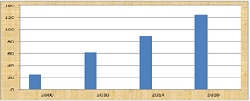
Conference Highlights
- Molecular Biology
- Gene Therapy and Genetic Engineering
- Cell and Gene Therapy
- Cell Cancer Immunotherapy
- Clinical Genetics
- Pharmacogenetics
- Molecular Genetic Pathology
- Gene Mapping
- Computational Genomics
- Molecular Biotechnology
- Genetic Transformation
- Genetic Screening
- Regulation of Gene Expression
- Genetic Transplantation
- Cytogenetics
- Cancer Cell Therapy
To share your views and research, please click here to register for the Conference.
To Collaborate Scientific Professionals around the World
| Conference Date | July 03-04, 2017 | ||
| Sponsors & Exhibitors |
|
||
| Speaker Opportunity Closed | Day 1 | Day 2 | |
| Poster Opportunity Closed | Click Here to View | ||
Useful Links
Special Issues
All accepted abstracts will be published in respective Our International Journals.
- Journal of Tissue Science & Engineering
- Journal of Molecular and Genetic Medicine
- Journal of Human Genetics & Embryology
Abstracts will be provided with Digital Object Identifier by






